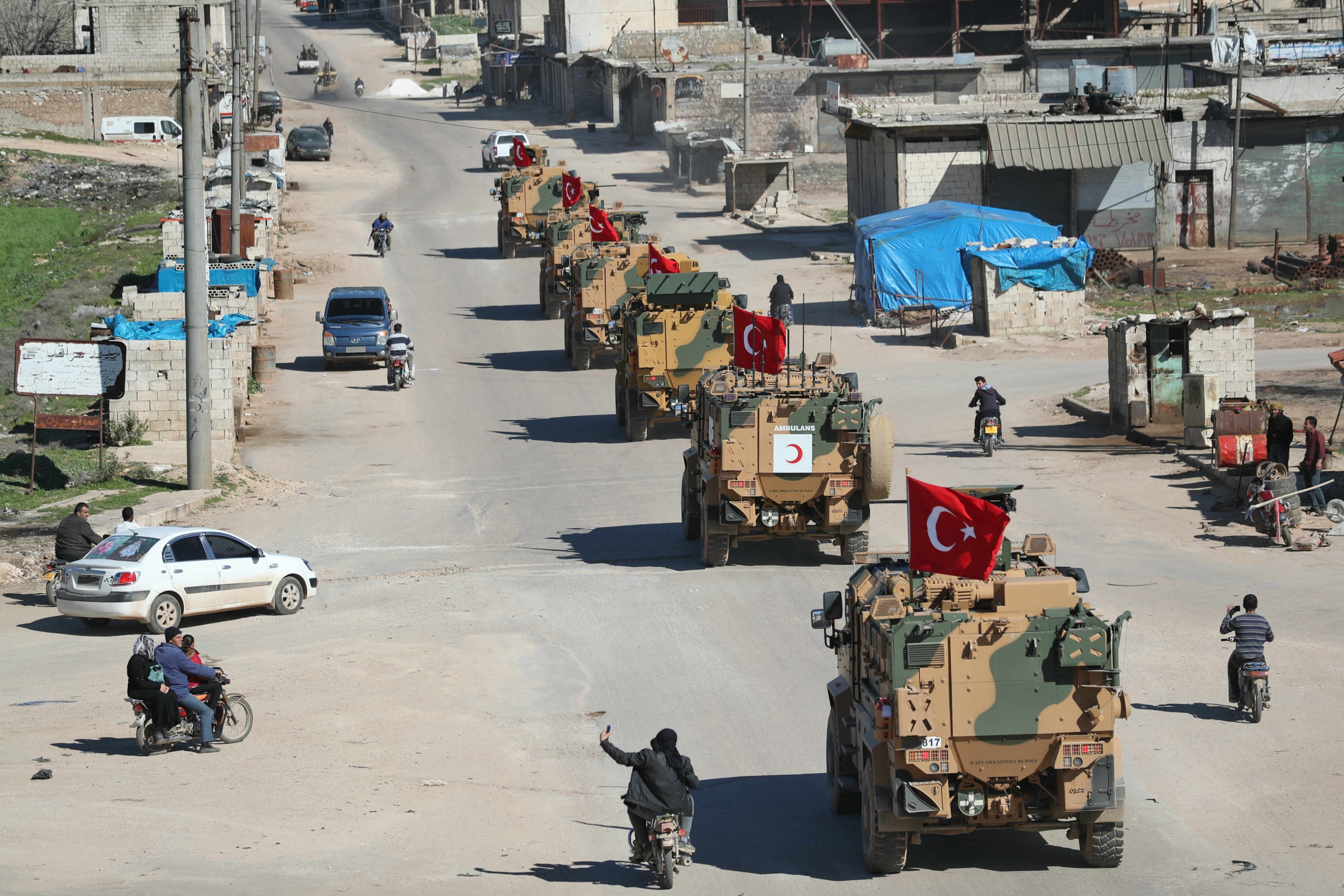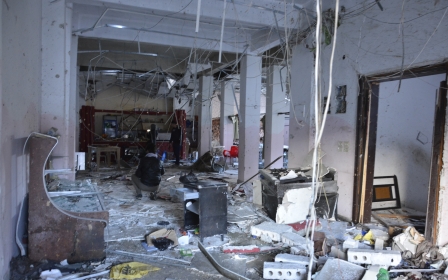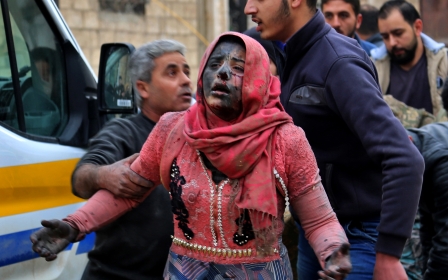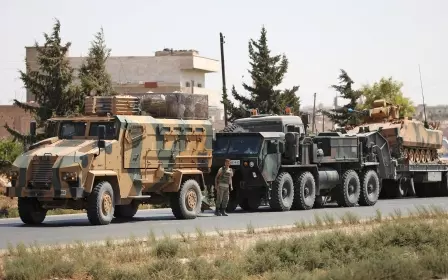Turkish and Russian patrols begin around Syria's Idlib

Turkish and Russian patrols have begun in Syria's northwestern Idlib region as part of a deal agreed last year, Turkey's defence minister has said.
Idlib province has been protected from an expected major offensive by the Syrian government following a September agreement between Damascus ally Russia and rebel supporter Turkey, which included setting up a demilitarised zone around the region.
"Today Russian patrols will start outside of Idlib in the border region [and] Turkish armed forces' patrols will begin in the demilitarised zone," Turkish Defence Minister Hulusi Akar said on Friday.
"There were restrictions on the use of Idlib and Afrin regions' airspace but these have been lifted from today," Akar told state news agency Anadolu in an interview.
Idlib is the last major region held by rebels in Syria and is controlled by Hayat Tahrir al-Sham (HTS), a group led by Syria's former al-Qaeda affiliate.
New MEE newsletter: Jerusalem Dispatch
Sign up to get the latest insights and analysis on Israel-Palestine, alongside Turkey Unpacked and other MEE newsletters
HTS took administrative control of the whole of the Idlib region in January.
Armoured vehicles
Despite being on opposing sides of the conflict, Turkish President Recep Tayyip Erdogan and Russian counterpart Vladimir Putin have been working closely in a bid to end the war.
An AFP correspondent on Friday morning saw a column of around 10 armoured vehicles on a road in the zone in the western countryside of the Aleppo province.
The Syrian Observatory for Human Rights, a UK-based activist group that relies on sources inside Syria, said Turkish troops were preparing to carry out patrols in the area agreed by the Russian-Turkish agreement.
"Turkish forces in Syria at observation points spread out in the areas of Aleppo, Hama, Idlib and the slopes of the Latakia mountains are preparing to conduct patrols in the areas of implementation of the Putin-Erdogan agreement," the monitor said.
More than 160 civilians, including 60 children, have been killed in air strikes and shelling by government forces since the buffer zone agreement was implemented, the Observatory said.
In that same time, 94 rebels and militant fighters have also lost their lives, as have 125 government fighters, it said.
Middle East Eye delivers independent and unrivalled coverage and analysis of the Middle East, North Africa and beyond. To learn more about republishing this content and the associated fees, please fill out this form. More about MEE can be found here.




